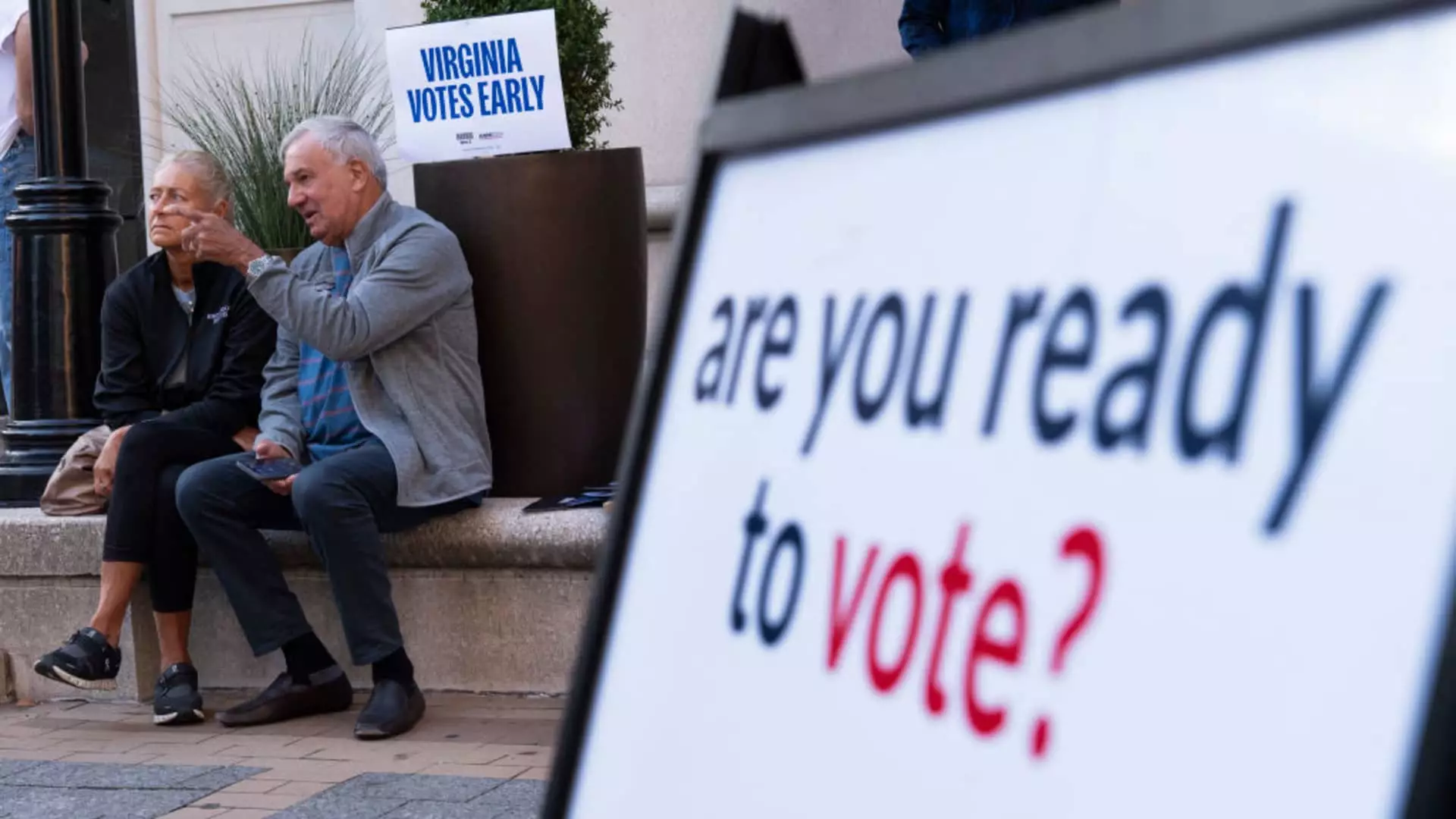As the November election approaches, political climate often takes center stage, influencing not only the choices voters make at the polls, but also shaping their financial behaviors. A burgeoning concern is that many Americans are placing financial decisions on hold, fueled by uncertainty regarding the election outcome. This deferment, however, may not be the wisest approach for individuals looking to maintain or enhance their financial well-being.
Financial Paralysis Amidst Election Anxiety
According to a recent survey by the CFP Board, a striking 63% of Americans have altered their spending habits, postponing key financial decisions like vacations, purchasing homes or cars, and undertaking renovation projects until after the election results are finalized. This trend underscores a broader phenomenon where market instability and political unpredictability lead many to adopt a passive stance toward financial matters. However, experts argue that such hesitance could hinder individuals from making sound financial moves, regardless of election outcomes.
Financial advisors emphasize that major changes in policy take time to implement—often requiring a concerted effort from both the President and Congress. As such, the immediate ramifications of an election may not manifest as quickly as one might think, and waiting for political outcomes to inform financial decisions is often counterproductive.
It is vital for individuals to shift their focus from the political landscape to their personal financial goals. Michael Liersch, the head of advice and planning at Wells Fargo, advises clients to ask themselves how potential election outcomes would impact their long-term financial strategies. “If Candidate A wins versus Candidate B, does it fundamentally alter your financial trajectory?” he poses. The reality is that many financial decisions can—and should—be made irrespective of political changes.
A prudent approach is to analyze existing financial plans through various lenses including best-case, worst-case, and moderate scenarios. Liz Miller, president of Summit Place Financial Advisors, highlights the importance of revisiting financial strategies instead of pausing at an election’s cusp. By doing so, individuals can ascertain whether delays are justified or if they could potentially miss out on beneficial opportunities.
Addressing Social Security Concerns
Another major consideration driving financial uncertainty is the future of Social Security. According to an Edelman Financial Engines survey, a staggering 81% of respondents expressed concerns over potential reductions in benefits. Without federal intervention, the Social Security trust fund is projected to deplete by 2033, leading to a 21% cut in available benefits. This looming uncertainty amplifies anxiety surrounding financial planning for retirement.
To mitigate risks associated with reduce Social Security benefits, individuals are encouraged to proactively assess their financial situations. This can include estimating future benefits, exploring ways to enhance savings, and recalibrating budgets to adapt for potential shortfalls. Creating a robust emergency fund and reducing debt are essential steps towards maintaining resilience in uncertain times.
Despite the tendency to pull back during difficult political climates, experts assert that proactive financial planning remains paramount. CFP Stacy Francis of Francis Financial encourages her clients to sketch out financial plans extending well into the future, allowing them to confront uncertainties head-on. Moreover, individuals should contemplate potential adjustments, such as Roth conversions or capital gains-taking strategies, in light of shifting tax policies.
Even with the current favorable conditions in the stock market—marked by double-digit gains—investors are urged not to remain paralyzed by the upcoming election. The advice centers on taking advantage of a stable market to realize gains while they remain beneficial.
Navigating financial decisions during an election season is an exercise in managing anxiety and uncertainty. While it might be tempting to defer major expenditures until political outcomes are clearer, the key takeaway is to remain grounded in personal financial planning and goals. Individuals who act decisively based on sound financial principles—rather than political uncertainty—will likely find themselves in a more advantageous position, regardless of which candidate ultimately emerges victorious. The most beneficial course of action is to focus on what you can control rather than letting the election dictate your financial journey.

